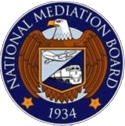In another step forward for SMART and the unionized sheet metal industry, SM Local 66 (Seattle) and SMACNA-Western Washington announced a joint initiative – the first in the industry – to make lactation pods available to new mothers, starting in April 2023. This is an important step that will help mothers in the sheet metal trade return to work without compromising convenience, privacy and comfort.
“They’ll have a seat, sink, HVAC, electricity for the breast pump and phone chargers, plus a refrigerator to keep the breast milk cold during the remaining hours of the workday,” reads a SMACNA-Western Washington press release. “The lactation pods are designed for comfort and accessibility and will keep women from the embarrassment of getting walked in on. They will also make it easier to keep breast milk fresh, reduce the difficulty of locating and getting to a private space and provide storage for their pumping gear.”
Returning to work as a new mother has historically been a very different experience for tradeswomen compared with those working in an office, for example. Many SMART sisters in the Pacific Northwest have reported that they frequently had to pump in places where privacy and peace of mind were anything but guaranteed, including port-a-potties, cars and more.
The Local 66-SMACNA-Western Washington partnership will aim to rectify those concerns: Through an exclusive partnership with a custom fabricator, the SMACNA-Western Washington press release adds, “the clean, sanitary pods will be digitally secure via an app.”
Local 66 – both leadership and the local’s Women’s Committee – collaborated with SMACNA-Western Washington, the Northwest Labor Management Organizational Trust and the Western Washington Sheet Metal JATC to raise funds for this landmark project. In addition to providing vital services to new mothers, the lactation pods will help strengthen Local 66 and SMART as our union seeks to grow across North America.
“This type of initiative demonstrates our ongoing commitment to progress; to making sure all workers are welcome on the job,” said SMART General President Joseph Sellers. “This is a groundbreaking first step as we continue to organize workers across our two nations.”


 OLYMPIA, Wash. – State lawmakers gave final approval April 24 to a bill meant to increase oil train safety.
OLYMPIA, Wash. – State lawmakers gave final approval April 24 to a bill meant to increase oil train safety. The state House on April 14 passed its version of a bill that would impose new safety regulations on oil shipped through Washington by rail, boat and pipeline.
The state House on April 14 passed its version of a bill that would impose new safety regulations on oil shipped through Washington by rail, boat and pipeline.